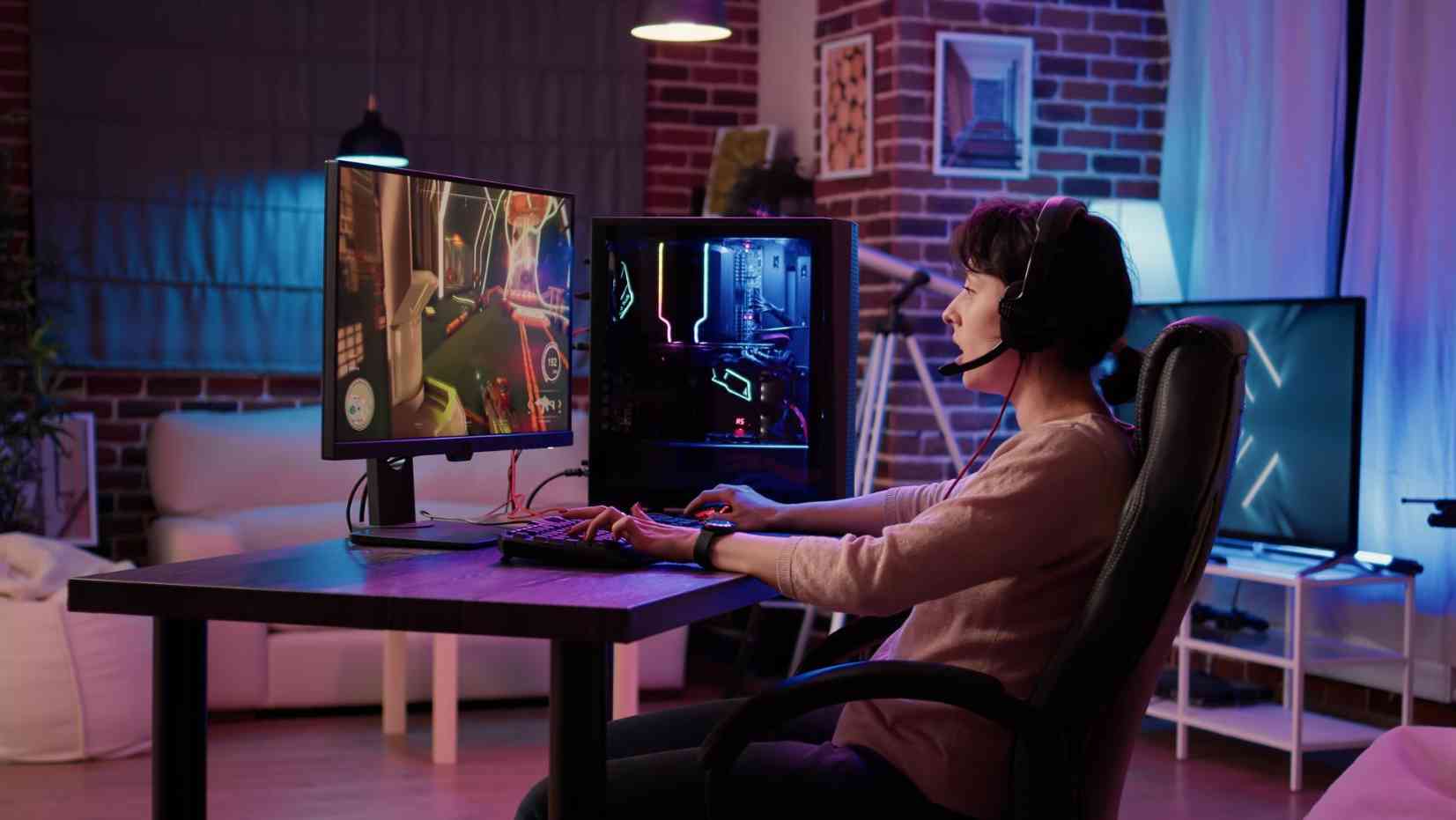A gaming PC is a significant investment, offering the power and performance needed to run the latest games at high settings. However, maintaining its performance and ensuring its longevity requires regular care and attention. Here are some essential tips for looking after your gaming PC to keep it running smoothly and efficiently.
1. Regular Cleaning and Dust Management
Dust is the enemy of your gaming PC. It can clog fans, heat sinks, and other components, leading to overheating and reduced performance. Here’s how to manage dust effectively:
- Regular Dusting: Use compressed air to blow dust out of your PC’s case, focusing on the fans, heat sinks, and other components. Do this every few months or more frequently if you live in a dusty environment.
- Case Filters: Ensure your PC case has dust filters on all intake fans. Clean these filters regularly to prevent dust from entering the case.
- Environment: Keep your gaming area clean and dust-free. Consider placing your PC on a desk or a stand to minimize dust intake from the floor.
2. Monitor and Manage Temperatures
High temperatures can severely impact your gaming PC’s performance and lifespan. Monitoring and managing temperatures is crucial:
- Software Monitoring: Use software tools like HWMonitor, Core Temp, or MSI Afterburner to keep an eye on your CPU and GPU temperatures.
- Thermal Paste: Replace the thermal paste on your CPU and GPU regularly, at least every few years, to maintain optimal thermal conductivity.
- Cooling Solutions: Ensure your PC has adequate cooling. This might include additional case fans, a better CPU cooler, or even liquid cooling solutions for high-performance rigs. You can also opt for gaming PC repairs if your PC is struggling.
3. Update Drivers and Software
Keeping your software up to date is crucial for security and performance:
- Drivers: Frequently update your graphics card drivers and other essential drivers to ensure compatibility with the latest games and features.
- Operating System: Keep your operating system (OS) updated with the latest patches and updates for improved security and performance.
- Game Updates: Make sure your games are always updated so that you can benefit from performance improvements and bug fixes.
4. Regular Backups
Protecting your data is crucial, especially if you have extensive game libraries and saved game files:
- Backup Solutions: Use cloud storage services to regularly back up your important files and game saves.
- Automated Backups: Create automated backups to make sure your data is always protected without needing to remember to do it manually.
5. Optimize Storage
Efficient storage management can enhance your PC’s performance and longevity:
- Solid-State Drives (SSDs): Use SSDs for your operating system and frequently played games for faster load times and overall system responsiveness.
- Disk Cleanup: Regularly perform disk cleanup to remove unnecessary files and free up space.
- Defragmentation: If you have traditional hard drives (HDDs), perform regular defragmentation to keep them running efficiently.
6. Power Management
Proper power management can prevent hardware damage and reduce energy consumption:
- Uninterruptible Power Supply (UPS): Use a UPS to protect your PC from power surges and outages.
- Power Settings: Adjust your power settings to balance performance and energy consumption, particularly if you leave your PC on for extended periods.
7. Hardware Maintenance and Upgrades
Regular hardware checks and upgrades can keep your PC in top shape:
- Component Checks: Periodically check your components for any signs of wear or damage. Pay attention to capacitors on the motherboard and GPU for bulging or leaking.
- Upgrades: Keep an eye on the latest hardware developments and upgrade components like RAM, GPU, and storage when necessary to maintain optimal performance.
8. Security Measures
Keeping your gaming PC secure is essential to protect your data and personal information:
- Antivirus Software: Install reputable antivirus software and keep it regularly updated to protect against malware and viruses.
- Firewall: Ensure your firewall is enabled to prevent unauthorized access.
- Safe Browsing: Practice safe browsing habits and avoid downloading software from untrusted sources.
Conclusion
Looking after your gaming PC involves regular cleaning, monitoring temperatures, updating software, and performing hardware maintenance. By following the above essential tips, you can ensure that your gaming PC remains in top condition, providing high performance and longevity. A well-maintained gaming PC not only enhances your gaming experience but also protects your investment, allowing you to enjoy your favorite games for many years to come.










